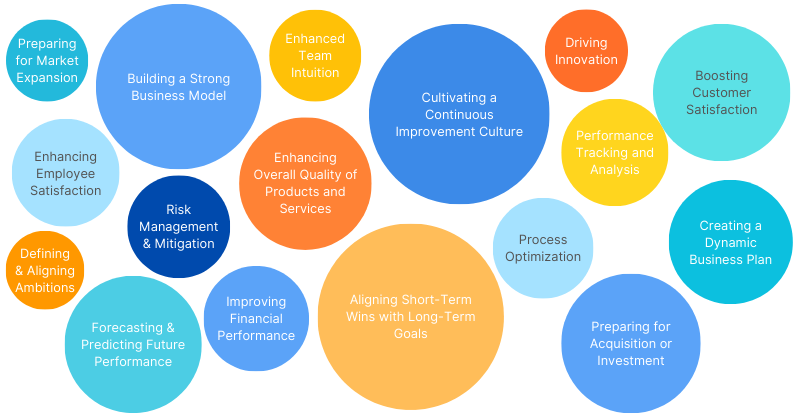
What is marketing policy?
Master Your Purpose. Own Your Freedom. With ICR.
The marketing policy is an integral part of the strategic marketing plan, focusing specifically on the marketing tools that shape the marketing strategy of your organization. It encompasses the tactics an organization employs to market and sell its products or services. Essentially, it is a comprehensive documentation of the marketing mix—product, price, place, promotion, people, process, and physical evidence—that the organization utilizes to achieve its marketing objectives.
Key elements of marketing policy:
- market research involves thorough investigation to understand the market dynamics, competitors, and consumer needs. For example, conducting surveys, focus groups, and analyzing sales data can provide insights into customer preferences and market trends.
- product development focuses on creating and modifying products or services to meet market demands. For instance, a tech company might develop a new software feature in response to customer feedback, ensuring the product remains relevant and competitive.
- the pricing strategy determining the appropriate price for products or services is crucial. This could involve competitive pricing, cost-plus pricing, or value-based pricing strategies, ensuring the price point aligns with market expectations and organizational goals.
- promotion for creating and implementing campaigns to promote products or services falls under this category. This might include advertising, public relations, social media marketing, and other promotional tactics aimed at increasing brand awareness and driving sales.
- distribution for choosing the right channels to deliver products or services to customers is vital. This could mean selecting between online platforms, retail outlets, direct sales, or a combination of these to ensure maximum reach and convenience for the customer.
Customer Relationship Management (CRM) for managing customer relationships to foster loyalty and satisfaction is another critical element. Implementing CRM systems helps track customer interactions, preferences, and feedback, enabling personalized and efficient customer service.
A well-defined marketing policy provides a clear guideline and focus for all marketing activities within an organization. It ensures that all efforts are aligned towards achieving common goals. For instance, by understanding customer needs through market research, businesses can tailor their offerings to better meet these needs, thereby enhancing customer satisfaction and loyalty.
Moreover, an effective marketing policy differentiates the organization from its competitors. This can be achieved through unique value propositions, innovative promotional campaigns, and superior customer service. For example, a company that consistently delivers exceptional customer experiences is likely to stand out in the market, attracting and retaining more customers.
Having a robust marketing policy also ensures the efficient use of resources such as time and money, minimizing waste and maximizing the return on investment (ROI) of marketing efforts. By strategically planning and executing marketing activities, organizations can achieve higher sales and stronger brand image with optimal resource utilization.
Marketing policy is also crucial for long-term planning. It provides a framework for anticipating future trends and market developments, allowing organizations to be proactive rather than reactive. For example, by analyzing market data and forecasting trends, a company can develop new products or adjust its marketing strategies to stay ahead of the competition.
A flexible marketing policy enables an organization to adapt to changing circumstances and customer needs. This adaptability might involve modifying strategies and tactics based on market feedback and data analysis. For instance, if a promotional campaign is not yielding the expected results, the organization can quickly pivot to a different approach based on real-time data insights.
In summary, marketing policy is essential for the success of an organization as it facilitates the effective execution of marketing activities. These activities, in turn, lead to improved customer satisfaction, increased sales, and a stronger brand image. By incorporating a detailed and adaptable marketing policy, organizations can navigate the complexities of the market, anticipate changes, and maintain a competitive edge.
Sustainable success through controlled and manageable growth
The ICR Growth & Success SaaS Platform helps people and organizations find balance and peace, through controlled and manageable growth, with the aim of a healthy and sustainably successful organization. We do this through the all-encompassing ICR Cycle.
Being inControl in this process from ambition to result is crucial. Within the ICR Cycle, inControl actually means controlled and manageable growth. The dashboard gives you insight into the current status. In the video below you can see how the dashboard transforms from the moment you start using ICR.
With our 4 ICR subscription options, you can decide for yourself when to fully engage with the entire ICR Cycle. Choose our successful approach and start your process 'from ambition to result' with the more than affordable ICR Ambition Refresher subscription.
General applications of the ICR Growth & Success SaaS Platform
The ICR Growth & Success SaaS Platform addresses a wide range of business needs, making it a versatile tool for organizations striving for sustainable success. Below is an overview of its general applications, along with the added value it provides for businesses and organizations.
Learn more about the general applications of the ICR Growth & Success SaaS platform.


